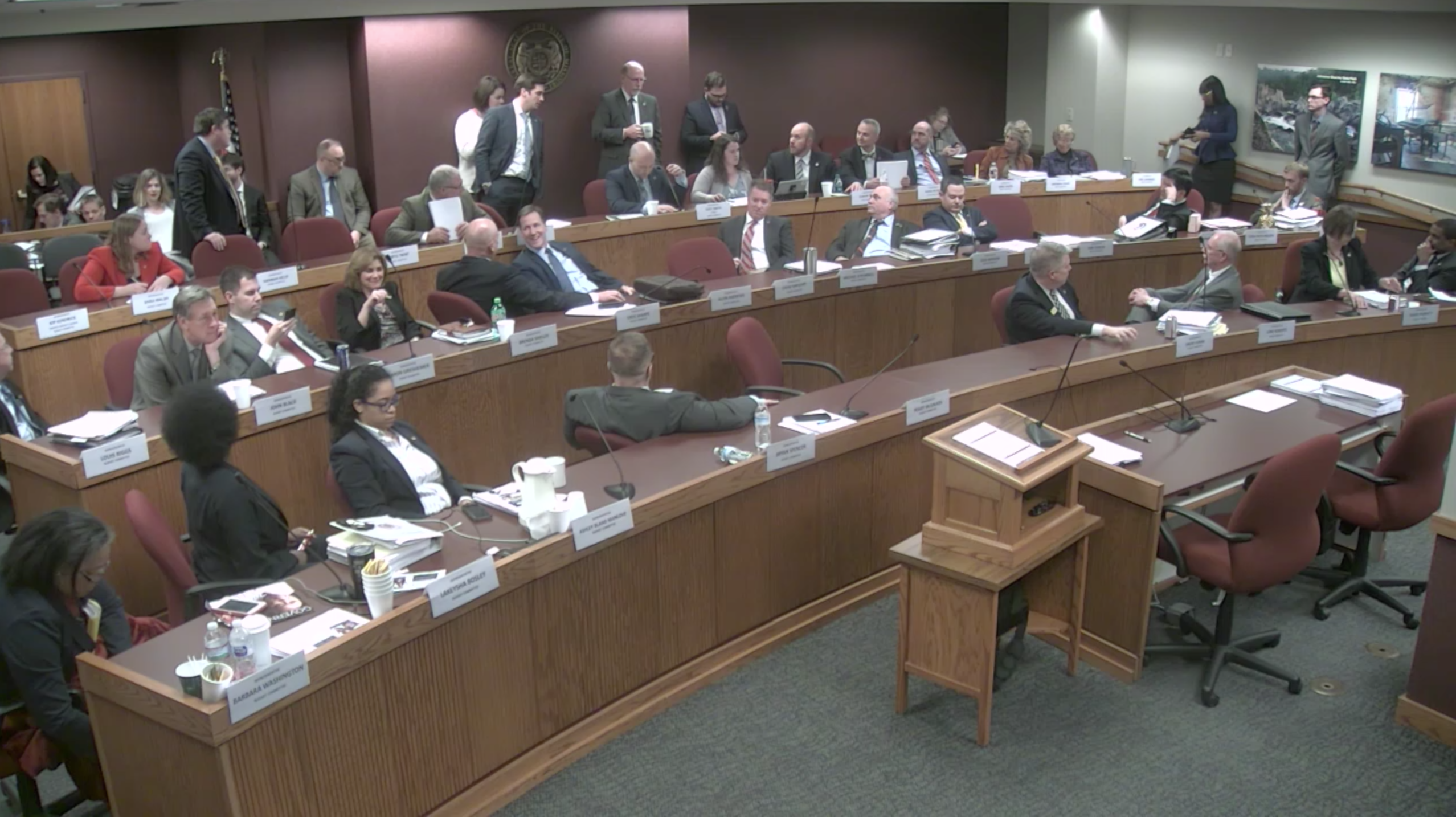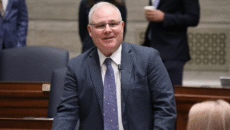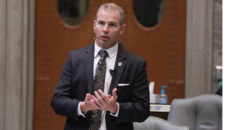JEFFERSON CITY, Mo. – The House Budget Committee has officially wrapped up their work, sending the proposed $29.7 billion budget to the full House for approval.
Working through the 13 bills that make up the FY 2020 operating budget for Missouri, the committee’s to-do list consisted of more than 100 proposed amendments from committee members and Budget Chair Rep. Cody Smith.
This is the sophomore chairman’s first budget, one he oversaw in markup in half the time as FY 2019.
Throughout the five-hour discussion on Wednesday, funding for the Fast-Track grant program, pay increases for corrections officers and state workers, and general revenue funding for bridges remained — mostly — intact.
The committee significantly scaled back increases to virtual desktops and put funding towards medical marijuana operations and industrial hemp programs.
The Fast-Track Workforce Incentive Grant — one of Gov. Mike Parson’s priorities — was funded at the full amount needed based on the fiscal note for the program. Parson originally recommended $22 million to go towards the program, but fiscal review projected it costing the state just more than $18 million.
The committee approved Smith’s amendment scaling back the original amount by $3,789,460 to the level Fast-Track is expected to cost the state.
“I do not intend to support any amendments that would take it down further,” said Smith. “I think we need to hold that line where it is.”
Several members of the committee proceeded to offer amendments decreasing the funding for the adult scholarship program. They argued the funding could be spent on Parents as Teachers, Access Missouri Scholarship, or other important programs that currently exist.
Rep. Peter Merideth pointed out that they were dedicating a significant amount of general revenue to legislation that has not passed yet.
All of the amendments further decreasing Fast-Track were voted down.
The recommendations for a 3 percent pay increase to state workers along with additional increases for Department of Corrections staff have made it through the process intact so far — though the committee did approve of reallocating three general revenue staff to the Canteen Fund. That $113,574 will go towards funding feminine hygiene items such as panty liners and tampons.
Parson’s proposal to fund 250 bridge repairs with a $351 million bond paid out over 15 years ($30 million per year) was officially axed from the committee budget — with no amendment proposed to restore it. Instead, the committee proposed dedicating $100 million to the state road fund from general revenue to pay for the repairs.
Surprisingly, a line item for virtual desktops became a hot topic. The governor’s recommendation increased funding for virtual desktops by $2 million, the committee proposed $1.9 million, and by the time amendments were approved, only $67,500 was left.
Rep. Brad Hudson proposed decreasing funding for virtual desktops by $1.5 million. That appropriation was then transferred to tourism. Rep. Dirk Deaton proposed decreasing funding for virtual desktops by $332,500. That appropriation was then transferred to Crowder College to expand its nursing program.
“If [virtual desktop are] good enough for us here in the General Assembly, it should be good enough for our state workers,” Merideth said.
Language prohibiting state funds for DUI checkpoints incited debate over best practices. Merideth proposed removing the language so that departments had the option to use checkpoints as another “tool.”
“I would rather not tie the hands of our law enforcement,” said Merideth.
Smith countered that “this is not a prohibition of checkpoints, it is a prohibition of state dollars on checkpoints.”
Merideth’s proposal failed. And so did his proposal to remove language prohibiting the expansion of Medicaid.
The committee approved Rep. David Wood’s amendment appropriating $11,290,479 to Medical Marijuana Program operations and support. He noted that the program should generate at least that once it is up and running next year.
An amendment from Rep. Robert Ross adding $5 million to fund research to finding a way to test for chronic wasting disease while the cervid is still alive was approved.
“I’m not looking at this from a profit perspective but that it is the right thing to do,” said Ross.
Through the committee substitute, three FTEs at $228,138 were allocated to the Department of Agriculture for the industrial hemp program.
Rep. Deb Lavender offered a slew of amendments to fund services for seniors and other vulnerable populations. All of her proposals decreasing funds failed.
The bills now head to the House, though they are not expected to be taken up until after spring break.


















